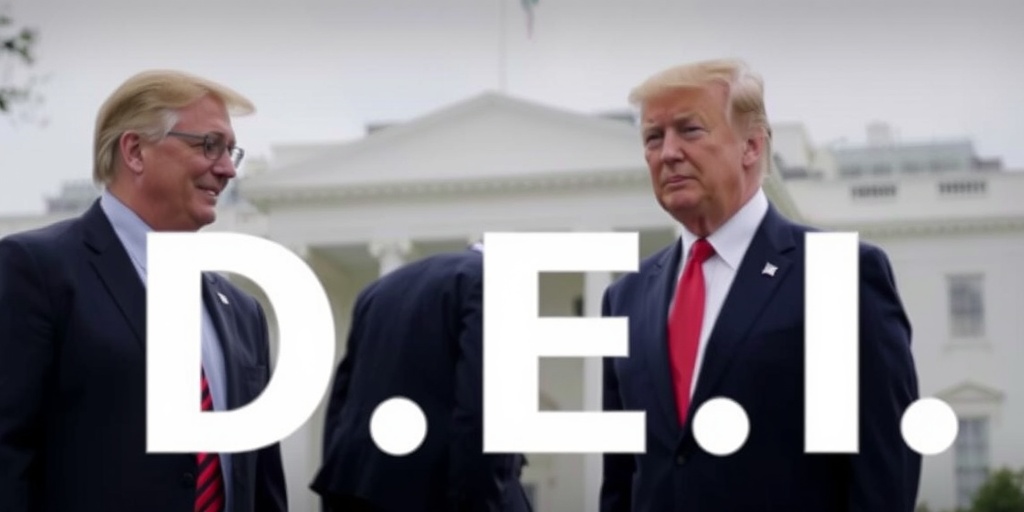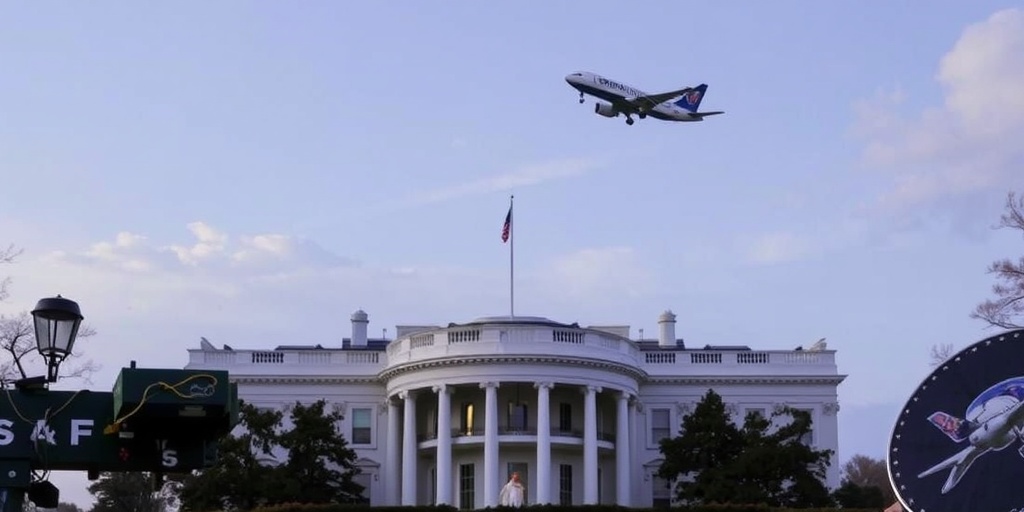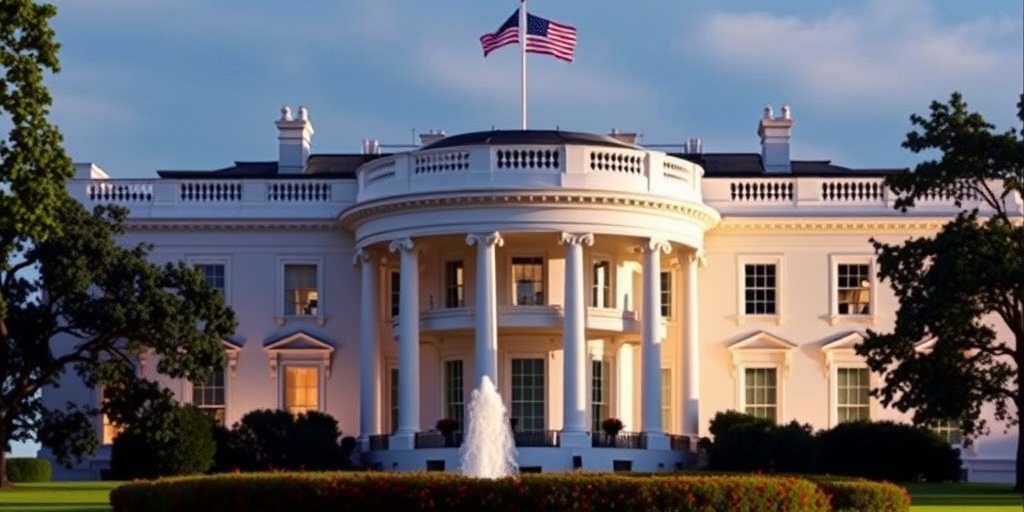Now Reading: Trump Administration Probes Law Firms on D.E.I. Hiring Practices
-
01
Trump Administration Probes Law Firms on D.E.I. Hiring Practices
Trump Administration Probes Law Firms on D.E.I. Hiring Practices

On Monday, the acting chair of the Equal Employment Opportunity Commission (EEOC), appointed by President Trump, initiated a significant inquiry into the diversity, equity, and inclusion (D.E.I.) practices of twenty prominent law firms. This move is viewed as the latest step in the Trump administration’s efforts to challenge what it sees as potentially discriminatory hiring practices within these firms. The request for information was communicated through letters sent to a number of distinguished firms, including Perkins Coie, Latham & Watkins, Kirkland & Ellis, and Sidley Austin.
The EEOC, a federal agency tasked with enforcing federal laws against employment discrimination, expressed its concerns regarding the possibility that certain practices employed by law firms to enhance diversity could inadvertently discriminate against white candidates. In these correspondences, the commission suggested that while firms aim to recruit a more diverse workforce, such efforts might have conflicts with civil rights laws. “The E.E.O.C. is prepared to root out discrimination anywhere it may rear its head, including in our nation’s elite law firms,” said Andrea R. Lucas, the acting chair, emphasizing that “no one is above the law — and certainly not the private bar.”
This inquiry is part of a broader pattern of actions taken by Trump against law firms that he perceives as not being sufficiently loyal to him. In recent weeks, he has directed attention towards Perkins Coie, a firm that was notably involved in Hillary Clinton’s 2016 presidential campaign, issuing an executive order aimed at crippling its operations. Additionally, he revoked security clearances for lawyers at Covington & Burling who had been involved in legal work relating to Jack Smith, the special counsel responsible for investigations into Trump.
Furthermore, the Trump administration has taken steps to curb D.E.I. initiatives across various sectors, labeling them as “illegal and immoral discrimination” programs. Leaders at the EEOC have indicated that they plan to focus on eliminating what they describe as “D.E.I.-motivated race and sex discrimination,” in alignment with Trump’s directives.
In her correspondence to Perkins Coie, Lucas raised specific inquiries about the firm’s diversity fellowships. She questioned whether these programs had previously imposed limitations based on race or required applicants to disclose their racial background when applying. Lucas also highlighted the existence of certain “resource groups” at the firm, linked to specific races, ethnicities, or other distinguishing characteristics.
Concerns arose among employment experts regarding the EEOC’s intensified scrutiny of D.E.I. programs at law firms. David Lopez, a professor at Rutgers Law School and former general counsel at the EEOC during the Obama administration, strongly criticized the implication that D.E.I. initiatives are inherently discriminatory. He articulated that such programs are designed to broaden the recruitment pool and ensure equitable opportunities for all individuals in the workplace.
The outreach by the EEOC is not limited to just a few firms. The other notable firms receiving similar inquiries include Skadden, Arps, Slate, Meagher & Flom; Ropes & Gray; A&O Shearman; Debevoise & Plimpton; Cooley; Freshfields Bruckhaus Deringer; Goodwin Procter; Hogan Lovells; McDermott Will & Emery; WilmerHale; Milbank; Morgan, Lewis & Bockius; Morrison Foerster; Reed Smith; Simpson Thacher & Bartlett; and White & Case. As of now, these firms have not publicly responded to the requests for comment regarding this inquiry.
In parallel to the investigation into D.E.I. matters, the EEOC has established an email address for whistleblowers: [email protected], providing a platform for individuals to report any potentially unlawful D.E.I. practices they observe within law firms. Lucas has also asserted that this inquiry into D.E.I. practices will go hand in hand with the agency’s commitment to defending what she called “the biological and binary reality of sex and related rights.” Recently, the EEOC has moved to dismiss lawsuits that accused businesses of fostering hostile work environments for transgender and non-binary employees, leading to actions that could be seen as retaliatory against those who raised concerns.
Notably, earlier this year, Trump dismissed two of the EEOC’s three Democratic commissioners, leaving the agency without a functioning quorum and hampering its ability to carry out formal activities against discriminatory practices. This has raised concerns about the future dynamics of employment law and civil rights enforcement at a time when the conversation around diversity and inclusion in the workplace is more critical than ever. As the situation evolves, it will be crucial for stakeholders to monitor how these actions will impact law firm policies and broader employment practices across the country.
Stay Informed With the Latest & Most Important News
Previous Post
Next Post
-
 01New technology breakthrough has everyone talking right now
01New technology breakthrough has everyone talking right now -
 02Unbelievable life hack everyone needs to try today
02Unbelievable life hack everyone needs to try today -
 03Fascinating discovery found buried deep beneath the ocean
03Fascinating discovery found buried deep beneath the ocean -
 04Man invents genius device that solves everyday problems
04Man invents genius device that solves everyday problems -
 05Shocking discovery that changes what we know forever
05Shocking discovery that changes what we know forever -
 06Internet goes wild over celebrity’s unexpected fashion choice
06Internet goes wild over celebrity’s unexpected fashion choice -
 07Rare animal sighting stuns scientists and wildlife lovers
07Rare animal sighting stuns scientists and wildlife lovers





















